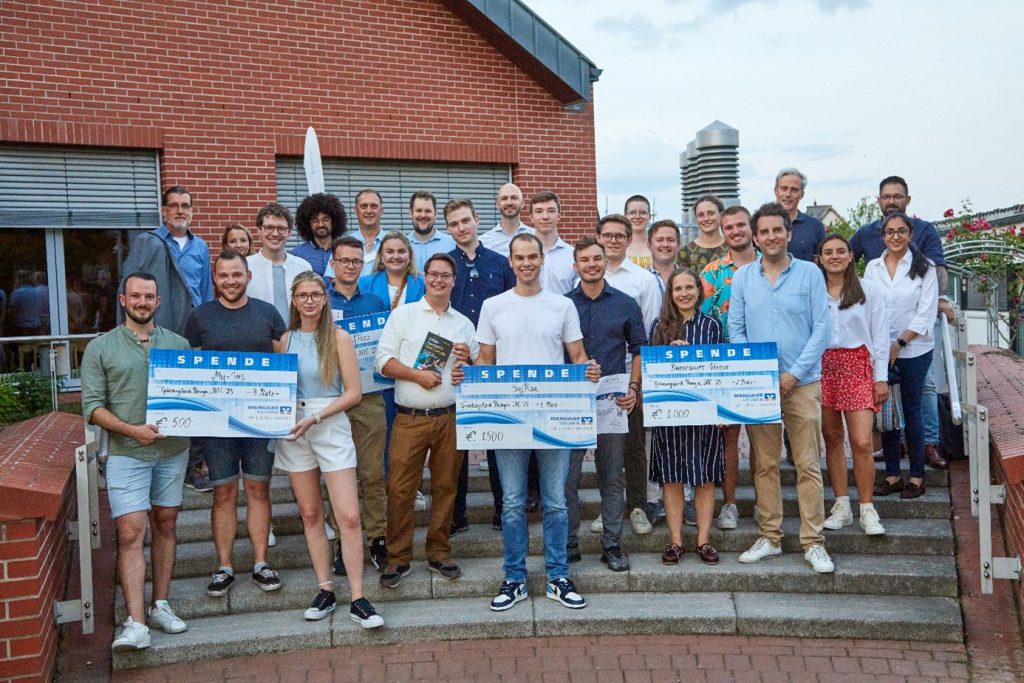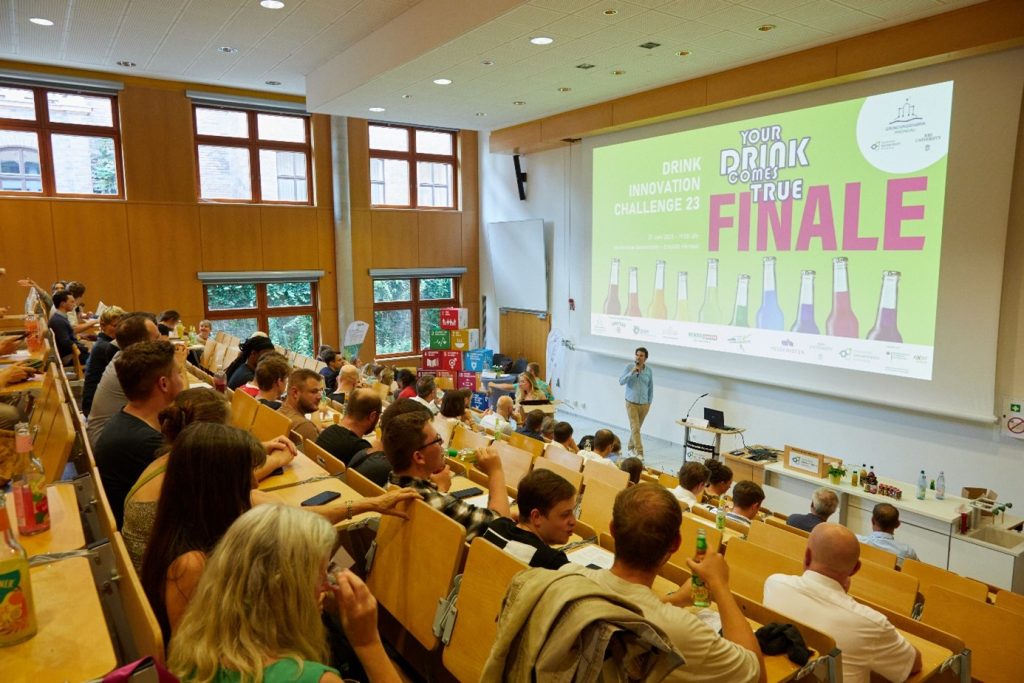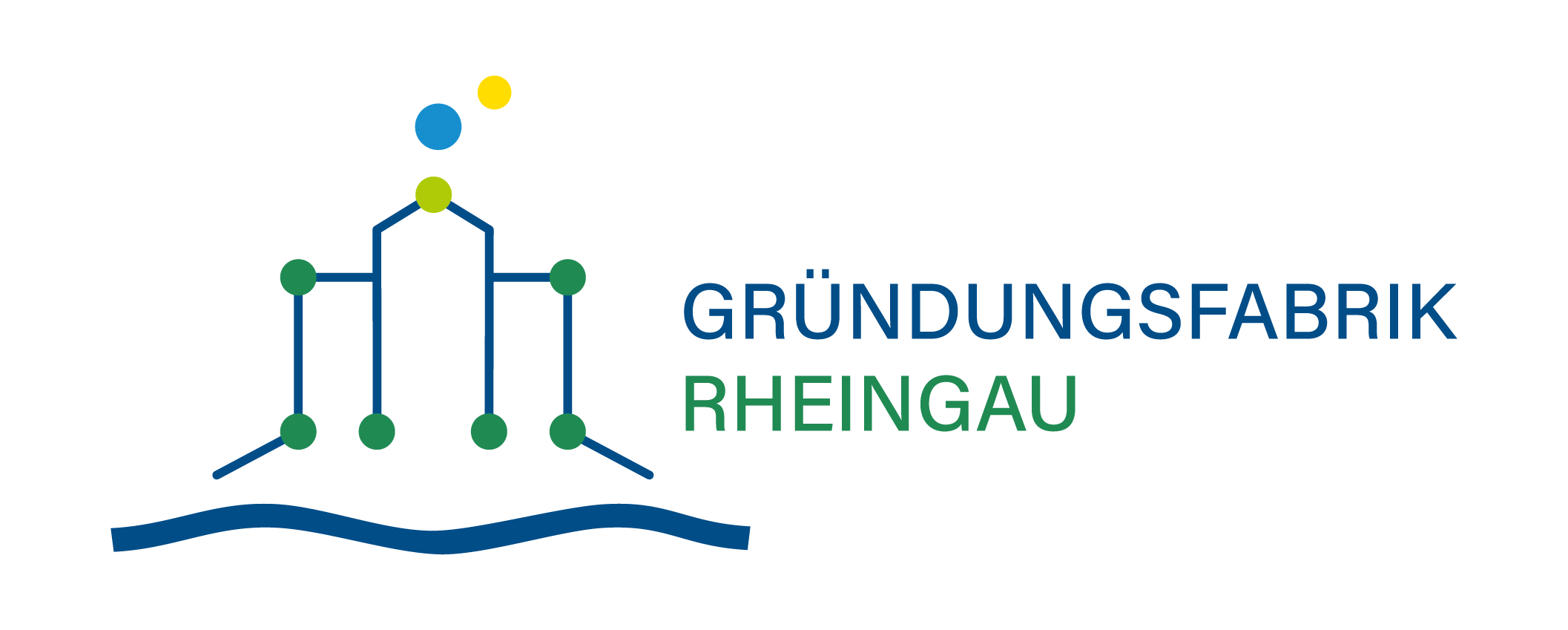Your Drink comes true ... Drink Innovation Challenge 2023 Review
And the bottle goes to …
Exciting final of the Drink Innovation Challenge 2023 of the Gründungsfabrik Rheingau
Geisenheim, 21. June 2023
After the premiere in 2022, a competition was held for the second time to develop an innovative, sustainable and non-alcoholic drink and then make this idea come true. The competition was aimed at students and alumni of the two Rheingau universities and – for the first time – also at technical and vocational students from the beverage sector as well as students from colleges and universities outside the Rheingau region. Both individuals and teams can compete in the DIC. This was made possible by the Drink Innovation Challenge 2023 of the Gründungsfabrik Rheingau, a joint project of Geisenheim University of Applied Sciences and EBS University, with the support of major partners from the beverage industry and its own innovation network.
“No idea is superfluous”
The Drink Innovation Challenge 2023 (DIC 23) started again in March with the call “Your Drink comes true!”. As the motto suggests, an idea should not only be spun, but also realised, and this at the Beverage Technology Centre (GTZ) of Geisenheim University of Applied Sciences. In addition to attractive prize money and feedback from the expert jury and the public, this was the main prize of the Challenge.
In order to offer all participants the same opportunities to set up the beverage idea sustainably and, above all, to make it technically feasible, the innovation scouts of the Gründungsfabrik offered an innovation workshop and a feasibility analysis for all interested parties as part of the Challenge. At both events, it was already clear that diverse and creative ideas would bubble up.And so, by the deadline of 21 May 2023, the sketches of ideas were submitted by vocational school pupils and students from all over Germany. To reward this work and courage, and to underline that no idea is “superfluous”, it was already clear before the final that all submissions would receive a voucher for a wine and sparkling wine seminar at the Rotkäppchen-Mumm Academy.
However, it was also clear that only the best ideas would be invited to the final pitch. The finalists were selected on the basis of the submitted idea sketches by the competition jury, which consisted of industry representatives and representatives of both universities involved in the joint project.
21. June 2023 – The final
Due to a tie, there were six instead of the planned five contestants who presented themselves in an exciting live pitch at the end of the MEET career fair on 21 June in the Erbslöh-Höhrsaal of Geisenheim University. Framed by an interesting programme of keynote speeches on innovations in the beverage industry by Kiran Janini and Dr. Volker Herdegen of Eckes-Granini, the pitch presentations formed the highlight of the DIC 23 finale. The high-ranking jury then had the difficult task of awarding the places on the winners’ podium.
The high quality of all the entries submitted was reflected in a very small gradation in the rating of the individual entries. The moderator of the evening, Dr. Jan Christoph Munck-Rieder, was enthusiastic: “Actually, we should produce all the drinks from the final!”
In the end, the head-to-head race was won by the idea “Sojran” by Geisenheim alumni Christian Sommer, Phillip Kaapke and Olmo Kroell. The utilisation of soy whey as a by-product, convincingly paid off on the required aspect of sustainability, inspired the jury and brought victory by a wafer-thin margin.
But the second and third places could also feel like winners.
EBS doctoral student Pascal Engelmann convinced with his innovative concept “Rheingauer Wasser”, which combines sustainable regional marketing with a fresh drink, and made it to second place with his team.
Due to equal points, two teams made it to third place: “LeafFizz” by Pascal Hamm, another EBS doctoral student, who can imagine creating iced tea based on vine leaves as a sustainable approach, and the team “My-Jus” by Lisabeth Wintermeier, Fabian Lechner, Stefan Weissensteiner, a group of students from the vocational school in Geisenheim, who want to produce a juice from grape waste thinned out by vintners as well as regional plant ingredients.
Altogether, all six finalists were able to inspire and be proud of their ideas. This was unanimously confirmed by the jury. Above all, the industry representatives were impressed by the quality of the entries, gave constructive feedback and assessed the implementation as realistic. The participants, for their part, were enthusiastic about the competition.
The competition was made possible by all participants, especially the sponsors Gerolsteiner, Eckes-Granini, DSM, Rotkäppchen-Mumm and Hessen Ideen as well as the colleagues from the Institute for Beverage Research at the Geisenheim University of Applied Sciences and of course the jury. In addition to feedback, the four winning teams also received a prize totalling 3,500 euros.
At the end of the evening, the young talents were able to exchange ideas with the industry leaders and enjoy a glass of sparkling wine. Who knows what ideas were still being worked out.


